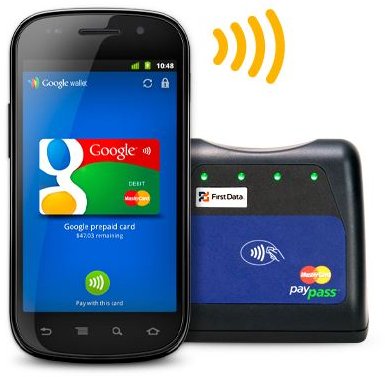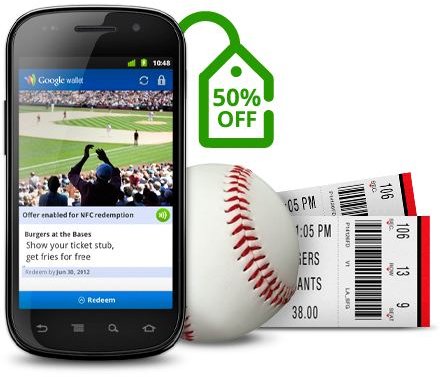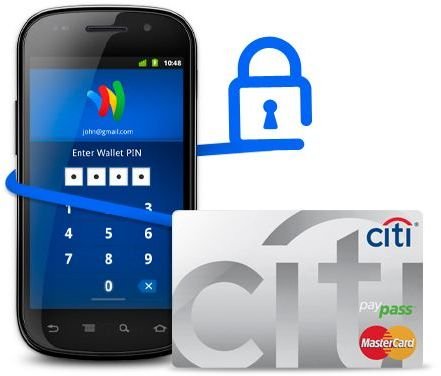Google Wallet and the Rise of Smartphone Payment
Smartphones are already the ultimate convergence devices. They offer so much more than just messaging and calls. Your smartphone can replace your digital music player, it can replace your camera, it can replace your Sat Nav, you can use it to surf the web, and it can serve as a portable TV or a handheld gaming device. With the explosion in apps you can add all sorts of additional uses to that list from simple flashlight to personal organizer. The latest potential use for your smartphone is to make payments for services and goods. We’re fast approaching the point where the only thing you need to remember when you leave the house is your smartphone.
What is Google Wallet?
Google Wallet was released in September. It’s a new service that allows you to use your smartphone to pay any merchant with a PayPass terminal. You enter your PIN number on your smartphone and then, thanks to NFC (Near Field Communication) technology, you can hold your smartphone over the receiver and the transaction will be processed. You get a confirmation on your smartphone display and that’s it, you can go.
Currently the service is very limited – we’ll go into that in a moment, but first let’s take a look at the potential benefits.
What’s the Big Deal?

Well the most obvious advantage is that you won’t need to carry any cards around with you. You’ll be able to add various cards to the service and use your smartphone to pay for everything. The service is more secure than using a card for contactless payments because you have to enter your PIN into your smartphone to use it.
It could also potentially be used to store loyalty card information and automatically add it when you make any purchase. With the addition of Google Offers you could enjoy special discounts and all of the necessary information is saved on your phone. You could also have a complete list of your financial transactions including location information. This could prove very handy for reimbursing business trip expenses.
When you renew a card or get a new card it could be potentially pushed out to your smartphone wirelessly. You could transfer funds and pay bills from your phone. If you owe money to a friend you could process the transaction phone to phone. Tap in an amount and hold your phones next to each other and the money could transfer.
The potential is huge, but right now it is just potential. Let’s take a look at the current limitations.
What Can You Do with Google Wallet Right Now?

Currently Google Wallet only supports a handful of cards – most Citi PayPass eligible MasterCard credit cards and the Google Prepaid Card. You can add cash to the Google Prepaid Card with any of your existing credit cards. The Google Prepaid Card is virtual, but if you opt for a Citi Mastercard then you’ll need to wait for the physical card to be mailed out and then enter the details into Google Wallet.
It only works at PayPass terminals. There is a MasterCard PayPass Locator app for Android available for free in the Android Market. There are currently around 150,000 U.S. merchants offering MasterCard PayPass. Both MasterCard and Google are committed to boosting this number so we should see plenty more rolling out in the near future.
It currently only works on the Google Nexus S 4G smartphone. In order for devices to support Google Wallet they’ll need to be running at least version 2.3.7 of Android, they’ll require NFC functionality, and they’ll need a Google-approved Secure Element which encrypts your credit card details and restricts access to just Google Wallet. We can expect a lot of new devices that will tick all these boxes in the coming months.
At the moment the service just allows you to pay for goods and services and you can redeem deals through Google Offers.
Where’s the Catch?

There are definitely a few potential problems for Google Wallet. For a start, if it is really going to replace your physical wallet then what happens when your smartphone battery dies? If you don’t have a backup card or cash then you’ll be stranded. Instead of a wallet you might find yourself carrying a spare battery.
Many people will also have concerns about security and privacy. The service is clearly more secure than a contactless card for payment because of the PIN requirement, but this also negates the speedy convenience angle. It will be much like using a chip and PIN terminal in terms of speed. If you enter the PIN incorrectly five times then the service is disabled.
As for privacy, the critical information should remain on your smartphone. However, you can bet that your transaction history will be used to determine which deals are highlighted to you. This kind of thing is increasingly common and it’s designed to cater for your likely desires, but many people aren’t comfortable with targeted advertising.
Will it Take Off?
You can certainly see the attraction. Imagine going to work in the morning, taking the subway, grabbing a coffee and paying for it all with your phone. Or going on a night out and grabbing a cab, having dinner and buying drinks all using your phone. It would be very handy and most of us are never separated from our phones anyway so it would reduce the risk of being caught short.
A lot of merchants are already jumping on board and that will increase the pressure on others to follow suit. With support and incentives offered by MasterCard and Google it does look likely to grow, but it could still be years before we see the kind of adoption that would mean you can ditch that plastic and cash.
By releasing this early, Google is well-placed to take advantage of the new market, but we can expect to see some competition. Google can exert considerable influence on how this service is rolled out on Android devices, but what about other platforms? I can’t see Apple being too keen to offer Google Wallet on the next iPhone.
In any case, the future for mobile is bright. NFC technology is an exciting development and things like Google Wallet are the first step towards us carrying smartphone devices that do everything. They already allow us to control other electronic devices and that kind of functionality will certainly expand. They could even replace your car keys and your house keys in the future, but that’s a much longer way off.
Many people rubbished the idea that you would only need a card to pay for everything when credit and debit cards rolled out, but you can get by quite easily now without ever handling cash. I see no reason why smartphones can’t serve the same function.
References
- Engadget, Honig, Zach, “A Week with Google Wallet”, http://www.engadget.com/2011/09/19/a-week-with-google-wallet-video/
- Google, http://www.google.com/wallet/
